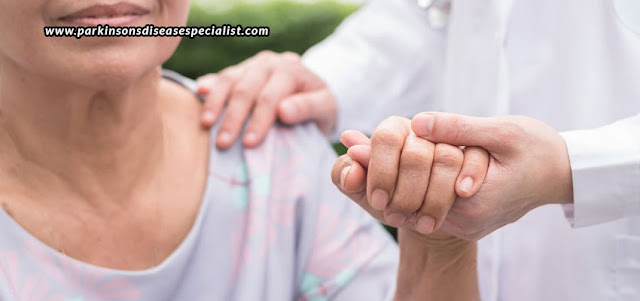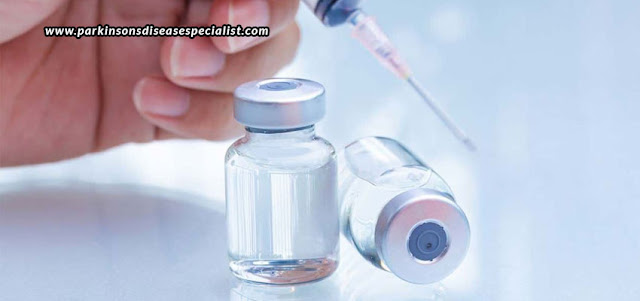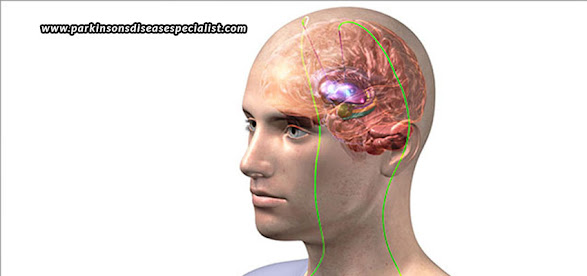Parkinson's Disease is a progressive neurodegenerative disorder that causes tremors, stiffness, and slow movement, which happens when the dopamine level in the nervous system begins to drop. However, these are only the initial symptoms of the movement disorder, when the patient suffers from the early stages of Parkinson's Disease. The disorder affects every individual differently but is likely to progress fast, if not brought under control. Once diagnosed, the patient should be treated at the earliest, by bringing them onto medications, injections, and therapies to manage their condition and control the symptoms (remember, Parkinson's Disease cannot be permanently cured!), which helps to keep the patient from progressing to further stages. But, if appropriate treatments are not taken up, the symptoms can worsen, shifting the patient rapidly towards end-stage Parkinson's Disease.
Parkinson's Disease Specialist - Dr. Shivam Mittal
Monday, 25 January 2021
Tuesday, 3 November 2020
The Many Clinical Uses Of Botulinum Toxin
Botulinum toxin is a bacterial toxin used popularly as a medicine injected into people suffering from certain movement disorders. Once injected, it relaxes the muscles, which controls involuntary movements, thus bringing relief. However, the relief is only temporary, lasting for only a few weeks. Generally, patients have to be re-injected with the toxin every 3-6 months for continual control over the muscle movements.
Monday, 21 September 2020
Deep Brain Stimulation For Parkinson's Disease – To Do Or Not To Do?
Parkinson's Disease is a movement disorder dating back to as far back as 12th century BC. But, it only came to be known better after James Parkinson's described the disease, which is why the name. Parkinson's Disease affects both men and women, most commonly after the age of 60. But, there are cases where younger patients also experience the disorder. You must thus be on the lookout for the symptoms, and immediately get in touch with a professional to identify the problem and suggest you an appropriate treatment. Although there is no permanent cure for Parkinson's Disease, yet there are a number of medications, therapies, and other treatments that can help alleviate the symptoms and bring relief, even though temporary.
What symptoms are associated with Parkinson's Disease?
Let us first understand the most common symptoms of Parkinson's Disease so that you can identify them at the earliest and take proper action. The most common symptoms associated with Parkinson's Disease include shaking of the hands, stiffness, and slowness of movement. However, if the disorder advances, the symptoms may also include depression, urinary symptoms, and dementia.
How can Parkinson's Disease be treated?
The first breakthrough in treating Parkinson's Disease came in the 1960s with the development of Levodopa. After this, there have been many medications made available for treatment over time, but none is as effective as Levodopa. After this came the discovery of Deep Brain Stimulation, which was first described in the late 1980s, but which only got approval by the FDA in 2002. Ever since, this treatment has been in use to treat Parkinson's patients, and relieve them of most of the symptoms (even though temporarily), improving the patient’s quality of life.
What is Deep Brain Stimulation?
Deep Brain Stimulation is an invasive surgery that involves implanting a neurotransmitter into the chest area, and electrodes into a specific part of the brain, which are connected with the help of wires to provide signals from the neurotransmitter to the electrodes, such that the brain can control the movements of the body.
Should you undergo a Deep Brain Stimulation surgery?
Although Deep Brain Stimulation is approved and highly effective, having shown wonderful results in patients who have undergone it, yet we would advise you to keep it as your last choice. After all, it is a surgery that is invasive, which means permanently altering certain parts of your body. So, you must first try treating yourself with medications and therapies. However, if your symptoms are worse and are not reacting to such treatments, Deep Brain Stimulation is then your best choice. Ideal patients for the surgery are those who are suffering from Idiopathic Parkinson's Disease, and are still dopamine responsive, but are unable to take an adequate dose due to side effects; or those who have significant disabling on and off symptoms.
Are there any complications after undergoing the surgery?
Despite the fact that Deep Brain Stimulation offers wonderful results of alleviating symptoms and helping the patient to live an improved quality of life, yet it is after all an invasive surgery, which means that there are undoubtedly chances of side-effects. If there is any fault in the surgery, there could be bleeding, infection, or misplacement. Also, the surgery may result in behavioural changes, visual disturbances, disbalance, etc. in some patients. However, all these side-effects can be controlled with appropriate programming. Also, Deep Brain Stimulation is a reversible procedure, which is why most complications can be effectively controlled. So, on the whole, there should be no problem in undergoing the procedure; yet, you must always have yourself diagnosed and treated by an expert, who can help identify whether Deep Brain Stimulation is the right choice for you or not. Dr. Shivam Mittal is one such professional offering Deep Brain Stimulation for Parkinson's in UAE for a long time now, with successful results. Here, you’ll be thoroughly diagnosed to see if your condition can be treated with the help of medications and therapies; and only if not, will you be given the last option of surgery. Thus, you can rest assured that you’ll get only genuine advice and treatment at Dr. Shivam Mittal’s.
Thursday, 30 July 2020
Precautions To Be Taken During The Pandemic By Parkinson’s Disease Patients
- Seniors are the most at risk to develop the symptoms of Covid-19, which can lead to the development of pneumonia. This is why it is important that senior consider getting the pneumonia vaccine as soon as possible.
- As we know, the virus spreads from person to person. Senior citizens must thus try to stay as much isolated as possible. Staying within their own room, away from other family members, or any guests that visit is a wise decision. Also, senior citizens must try as much as possible not to move out of home, no matter what. And, those senior citizens who live in communities or assisted living centers must avoid communal rooms, and also sanitize often.
- Sanitization during the pandemic involves washing hands with soap and water often; or at least using a sanitizer, especially when having touched people or objects. The best sanitizer to be used is one having at least 60% alcohol.
- In case senior citizens have to move out of home, they must limit their outdoor time, and while they’re out, they must wear a mask or cloth face cover at all times. Also, when they need to use a seat, table, or vehicle, they must sanitize the place thoroughly before using it.
- With Parkinson's disease, it is really difficult to move, let alone going out of the house every now and then. And, with the virus being spread so quickly, it becomes even more important to move out once and stock up on essential supplies for the entire month, or at least a fortnight. In fact, we’d suggest you have a friend or neighbor do the shopping for you. Or, you could have a home delivery system in place from the grocer or online.
- Whether indoors or outdoors, make it a practice to social distance, that is, stay at least 6 feet away from others. Also, avoid any kinds of crowded places, whether it is a market, or a gathering at home.
- As a Parkinson's Disease patient, you may have a list of medications to take every day. But, instead of going to the medical store every now and then, it is advisable to stock up on your medications at one time. However, if you do have to reorder, try doing so over the phone or online for home delivery.






